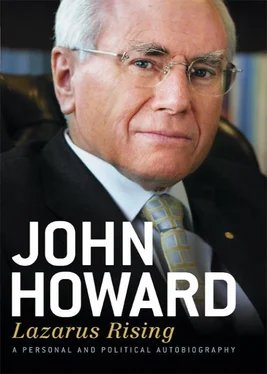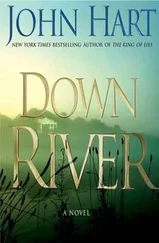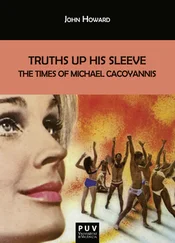That section had been in the Tax Act for decades, and stated that if an arrangement were entered into by a taxpayer with the purpose of avoiding taxation, then to the extent of that avoidance, the arrangement was void against the commissioner. For a long time the section had been applied effectively to protect the revenue against blatant and artificial schemes, but from the late 1960s and into the ‘70s, however, the High Court began applying the section differently. By the time of Cridland’s case, decided on 30 November 1977, it was the view of Bill O’Reilly and his colleagues that section 260 was useless.
My response was to instruct the Tax Office to draft a new anti-avoidance section to replace (or update) section 260. The commissioner and his colleagues thought this a waste of time, telling me that no matter what parliament said, the courts would find a way of watering it down in favour of the taxpayer. I persevered and ultimately a new anti-avoidance section, known as part IVA of the Income Tax Assessment Act, was introduced, coming into operation in May 1981. Part IVA has worked very effectively. According to the commissioner, it put a stop to new tax-avoidance schemes of a totally contrived nature.
The controversy following my axing of the Curran Scheme was as nothing to the conflagration which occurred almost five years later when the Government enacted tax recoupment legislation to collect the proceeds of tax evaded through the use of bottom-of-the-harbour schemes. The bottom-of-the-harbour scheme involved a practice which effectively denuded a company of any assets, meaning it was unable to meet its tax obligations. It was different from an artificial tax-avoidance scheme, where the arrangement was such that there was no legal obligation to pay the tax. With bottom-of-the-harbour schemes the legal obligation remained, but the company had no assets with which to meet the obligation. The disposal of the company’s assets was a fraud on the revenue because its only purpose was the evasion of the tax. Why ‘bottom of the harbour'? In some cases disposal of the assets was accompanied, literally, by the records being thrown into Sydney Harbour.
The legal advice then was that, because fraud was involved, the scheme could not be banished under existing law or a specific prohibition, as with Curran. The only remedy was to make the fraudulent disposal of assets a crime. This caused me to swallow hard. It was one thing to adopt a no-holds-barred approach to outlawing artificial tax schemes; it was entirely another to threaten people, for the first time, with the criminal law if they engaged in certain behaviour. A lot of citizens deplored tax minimisation, but even they may have baulked at making the minimisers criminals.
After a lot of agonising, I recommended to the Government that it use the criminal law to stamp out bottom-of-the-harbour schemes. The Crimes (Taxation Offences) Act came into operation early in December 1980 and ended the practice. I thought that I would hear little more of bottom-of-the-harbour schemes. I was, however, wrong, although it would be two years before this became apparent.
In September 1980, Malcolm Fraser and the Victorian Liberal Government had appointed Frank Costigan QC, a Melbourne lawyer, to conduct a Royal Commission into the activities of the Federated Ship Painters and Dockers Union. This group was notoriously linked to alleged criminal activity on the wharves and elsewhere. The aim was to expose any corrupt or illegal behaviour. But it also could embarrass, politically, the Labor Party, because of its associations with the union, especially in Victoria.
During his investigations, Costigan uncovered the involvement of some officials and affiliates of the union with people who had promoted bottom-of-the-harbour tax schemes. He included this material in his findings, which became a blockbuster report, and along with the separate McCabe/Lafranchi report, tabled in the Victorian Parliament, it ended up damaging the Fraser Government. Names, amounts and shady practices were detailed. This heightened public outrage. The Victorian report cited ‘very serious errors and omissions and resigned attitudes on the part of the Australian Taxation Office'. 2 Both reports gave colourful and dramatic descriptions of what had gone on in some bottom-of-the-harbour activities.
Regrettably for the Government, the perception was that a vast amount of tax had been evaded before the criminal law had been invoked, and nothing had been done to recover it. The fact that the Government had taken steps to ensure that even more tax would not be evaded in the future made no impact on the public.
The issue was on our minds as we prepared the 1982 budget. With the country rapidly falling into recession, that budget was proving very difficult to put together. The Taxation Office and the Treasury urged the passage of special legislation to recover tax evaded under bottom-of-the-harbour schemes prior to the passage of the special criminal legislation in November 1980; so did Peter Durack, the Attorney General.
The attraction of collecting the tax to help with the budget, combined with the apparent value of quietening public concern regarding the evasion of so much taxation, proved an irresistible combination. On 25 July 1982 I announced that we would legislate.
This caused uproar in many sections of the Liberal Party and the business community, particularly in Western Australia and Queensland. Elsewhere, there was a lot of support for what the Government had decided to do. The gathering recession had slashed revenue forecasts and, as a consequence, collecting this unpaid tax would avoid some less palatable imposts on honest taxpayers.
The legislation, however, wreaked havoc on Coalition unity. No fewer than 14 members of the Liberal and National parties crossed the floor to vote against it.
The decision to enact the recoupment legislation did not kill the issue. Critics alleged that if the Government and the Taxation Office had not been negligent in the first place, this special legislation would not have been needed. This issue put me under great pressure from the Labor Party and the press. To defuse the situation I tabled in parliament all of the advice I had received from the Tax Office on the subject. It became known as the ‘telephone book’ because of the large number of documents involved.
There were rough patches for me, particularly some of the delays between Tax Office advice and action in response. The quite radical transparency I had adopted — the bureaucracy was horrified, so were a few of my ministerial colleagues — took a lot of steam out of Labor’s attack. In addition, the opposition then scored a spectacular own goal, which effectively took the heat off the Government.
At the time Hayden was under pressure, having just beaten off a challenge from Hawke. He overreached, in the hope of landing a leadership-boosting blow on the Government, with his allegations of tax avoidance against the respected businessman John Reid. Reid had been a director of a company subsequently sold in a bottom-of-the-harbour scheme. Foolishly, Hayden named him in the house on the strength only of a company search showing Reid as a director. At Reid’s request, the commissioner quickly looked at his affairs and was able to certify that he had not been involved in any improper conduct. This blew Hayden out of the water. He had gone too far.
Although it was no longer on the back foot, the Fraser Government had been hurt by the whole episode, because there was a lot of disunity and bad blood in our own ranks.
After all the drama I have described, Murray Gleeson QC, the clear leader of the bar, later Chief Justice of New South Wales and then Australia,
delivered an opinion that section 260 could, after all, be used to recover tax evaded through bottom-of-the-harbour schemes, and that special recoupment legislation had not been needed. Several years later, the Federal Court agreed with Gleeson. It was a frustrating finale to a distracting revenue and political saga.
Читать дальше












